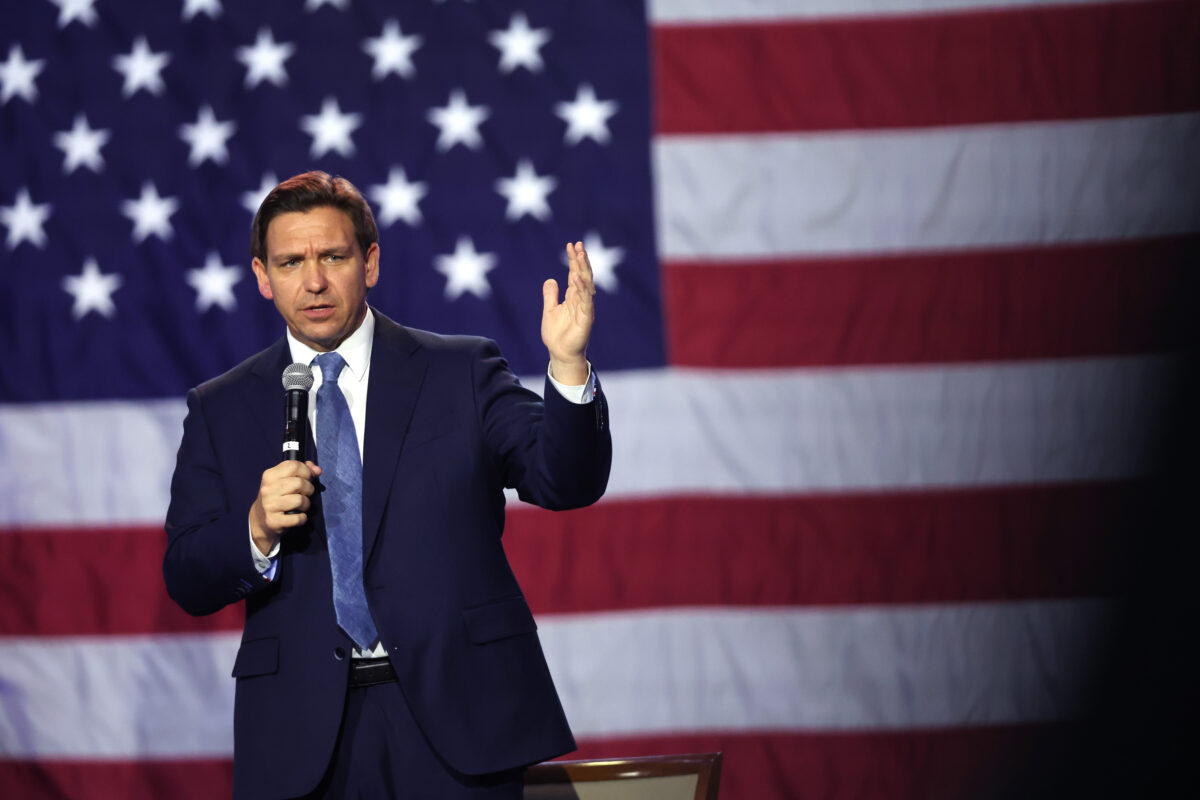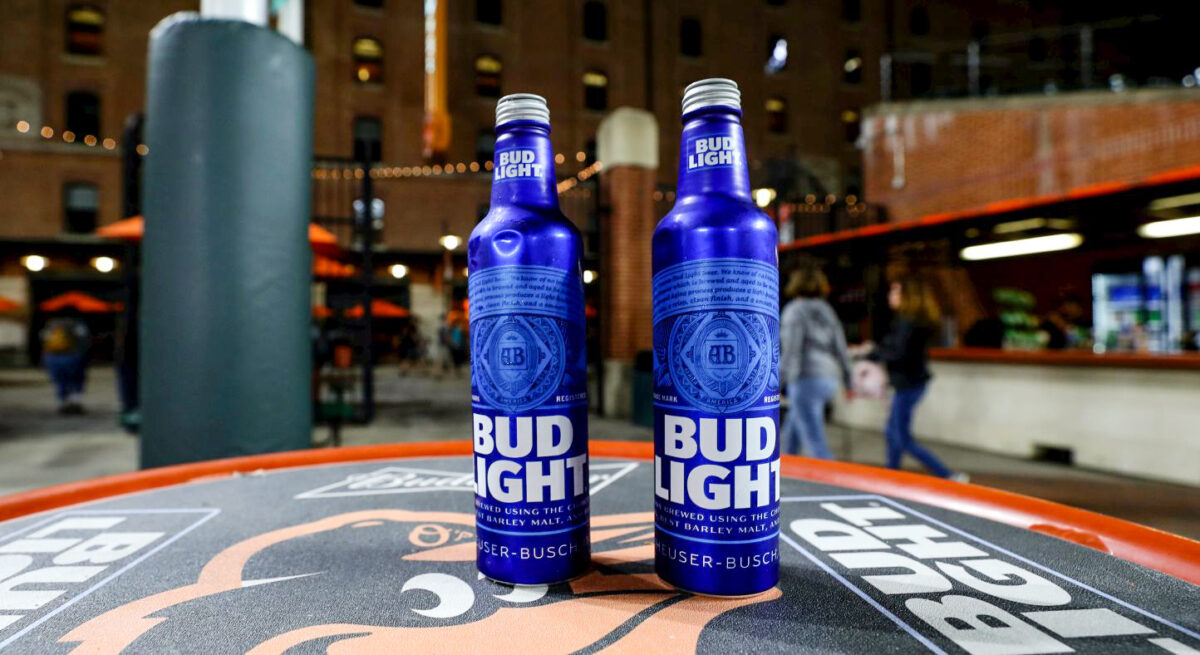


Florida Gov. Ron DeSantis on Monday urged people to continue boycotting Bud Light amid the company’s controversial promotion of transgender influencer Dylan Mulvaney.
DeSantis told political commentator Benny Johnson that he would not be drinking Bud Light because he didn’t want to enable “woke companies” and their aims of “trying to change our country, trying to change policy, trying to change culture.”
“I’d rather be governed by ‘We The People’ than woke companies and so I think pushback is in order across the board including with Bud Light,” DeSantis said.
Earlier this month, Anheuser-Busch, the firm that makes Bud Light, sent custom beer cans to Mulvaney featuring the trans activist’s face, prompting backlash by a number of prominent conservatives, many of whom accused the company of pushing a transgender agenda.
Singer Kid Rock used Bud Light cans as target practice to express his anger at the promotional campaign, while Mike Crispi, former Republican New Jersey primary candidate for Congress, called for a boycott.
“Boycott Bud Light and NEVER DRINK IT AGAIN EVER,” he stated in an April 3 post on Twitter.
Responding to the backlash, Anheuser-Busch CEO Brendan Whitworth said in a statement Friday that the campaign was not meant to be divisive.
“We never intended to be part of a discussion that divides people. We are in the business of bringing people together over a beer,” he said.
Weighing into the controversy, DeSantis said he saw the campaign as provocative to conservatives and urged a boycott to send a message.
“Why would you want to drink Bud Light?” DeSantis said. “I mean like honestly, that’s like them rubbing our faces in it and it’s like these companies that do this, if they never have any response, they’re just gonna keep doing it.”
“So, if you as a consumer are like … ‘yeah, they’re doing that, but I’m just gonna keep drinking it anyways,’ well, then they’re gonna keep doing it,” DeSantis continued.
“I think we have power as consumers to make our voice heard,” he added, arguing that the Bud Light trans campaign isn’t a one off but is “part of a larger thing where corporate America is trying to change our country. Trying to change policy, trying to change culture.”
Asked if he would ever drink Bud Light again, DeSantis replied, “No, I don’t think so.”
Some industry analysts say that the Bud Light boycott appears to be having a significant impact.
“This boycott seems to have more legs than most,” Justin Kendall, editor of beer industry trade publication Brewbound, told the New York Post on April 11. “It started out as a conversation on social media and has breached into mainstream media.”
Beer Business Daily Editor and Publisher Harry Schuhmacher said that distributors in some rural areas are “spooked” by the backlash.
“This is probably the biggest controversy we’ve seen in a long time,” Schuhmacher told Fox News. “There was a little bit of worry, especially in the South and the Midwest and especially in rural areas where retailers were reporting the, you know, their customers weren’t happy with Bud Light and some retailers themselves weren’t happy with Bud Light.”
By contrast, some analysts said that the ad campaign and boycott will benefit Bud Light over the long-term.
“There have been many cases of brands growing their business as a result of taking a strong stand that resulted in some criticism, but even stronger engagement with a key audience,” Tim Leake, chief marketing officer at ad agency RPA, told CNN last week.
Others argued that social media backlash typically fades over time.
“What we see predominantly is the social media backlash … is often very short-lived,” Pedr Howard, with the research firm Ipsos, told CNN. “The conversation moves on.”
There are signs of pushback on the part of shareholders and employees of companies that have taken political stances on a variety of issues.
Two recent shareholder actions, charging political and religious discrimination, were approved by the Securities and Exchange Commission (SEC) to proceed to a shareholder vote at JPMorgan Chase and PayPal.
A study called “The Demotivating Effects of Communicating a Social-Political Stance” (pdf) authored by Vanessa Burbano, a professor at Columbia Business School, found that there’s mostly just downside to firms taking on political agendas.
“I observe a demotivating effect of taking a stance on a social-political issue with which employees disagree, and no statistically significant motivating effect of taking a stance on a social-political issue with which employees agree,” Burbano wrote.
“From a practical perspective, this paper suggests that managers should be aware of their employees’ stances on a given political or social issue prior to taking a public political stance on that issue and should think twice about taking a stance that is incongruent with that of their employees,” she wrote.
Jack Phillips and Kevin Stocklin contributed to this report.

